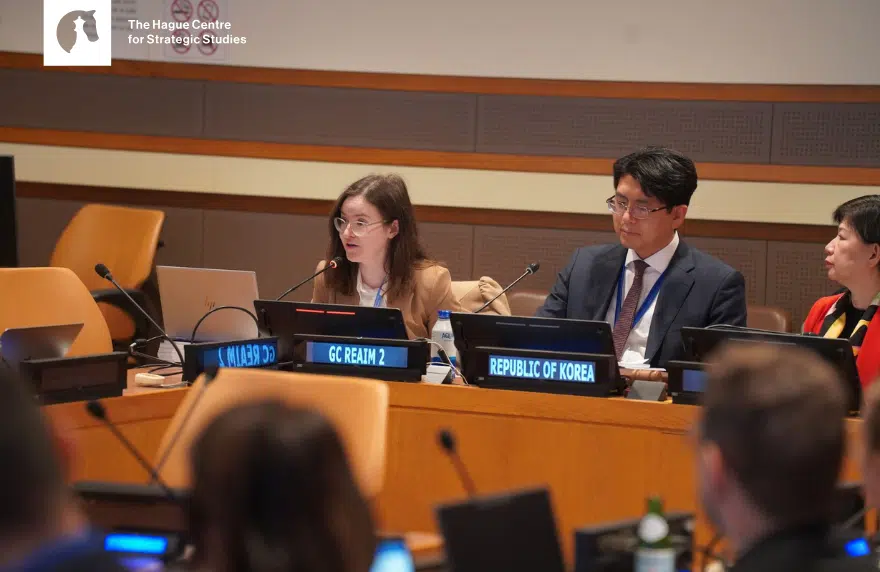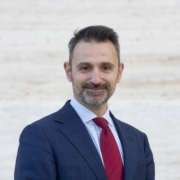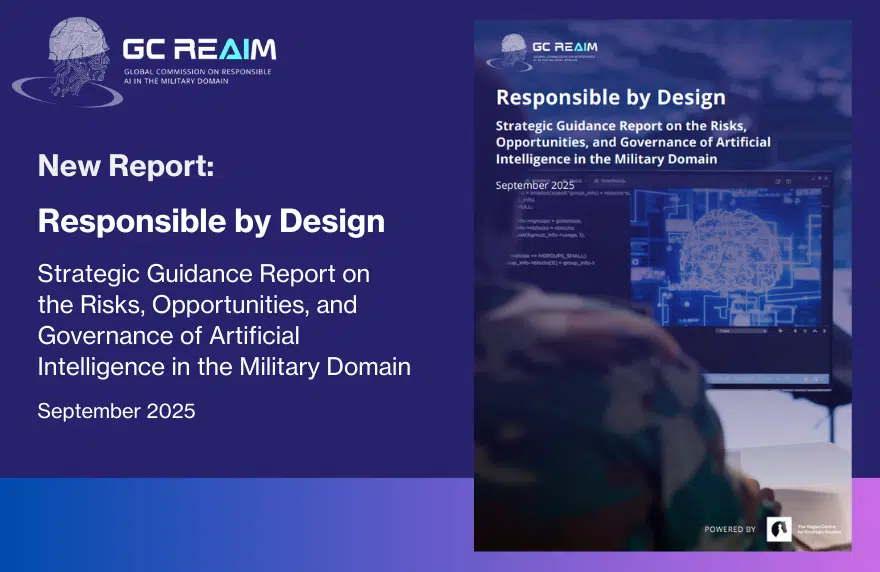On Thursday the 16th of October, Sofia Romansky, representing the GC REAIM – Global Commission on Responsible Artificial Intelligence in the Military Domain was back at the United Nations in New York after the publication of the Strategic Guidance Report was first announced by Prime Minister of the Netherlands, Dick Schoof, at the Security Council in September.
Along with GC REAIM Commissioner Michael Horowitz and GC REAIM Expert Giacomo Persi Paoli, Sofia sat beside Under-Secreteray-General and High Representative for Disarmament Affairs Izumi Nakamitsu and Disarmament Ambassadors of the Netherlands and the Republic of Korea Robert in den Bosch and Song Si-jin for this side-event.
Following excellent remarks from the High Representative and Ambassadors, who helped contextualise the GC REAIM Strategic Guidance Report in ongoing deliberations at the First Committee as well as the broader REAIM process, Sofia presented the report’s findings and recommendations, emphasising the document as a unique contribution to global deliberations around the governance of AI in the military domain due to the ways in which it integrates interdisciplinary knowledge and international perspectives. Our hope is that the report will serve as a solid knowledge base, something to ground continued dialogue, based in technical, military, legal, and ethical understanding as we work towards confidence and capacity building.
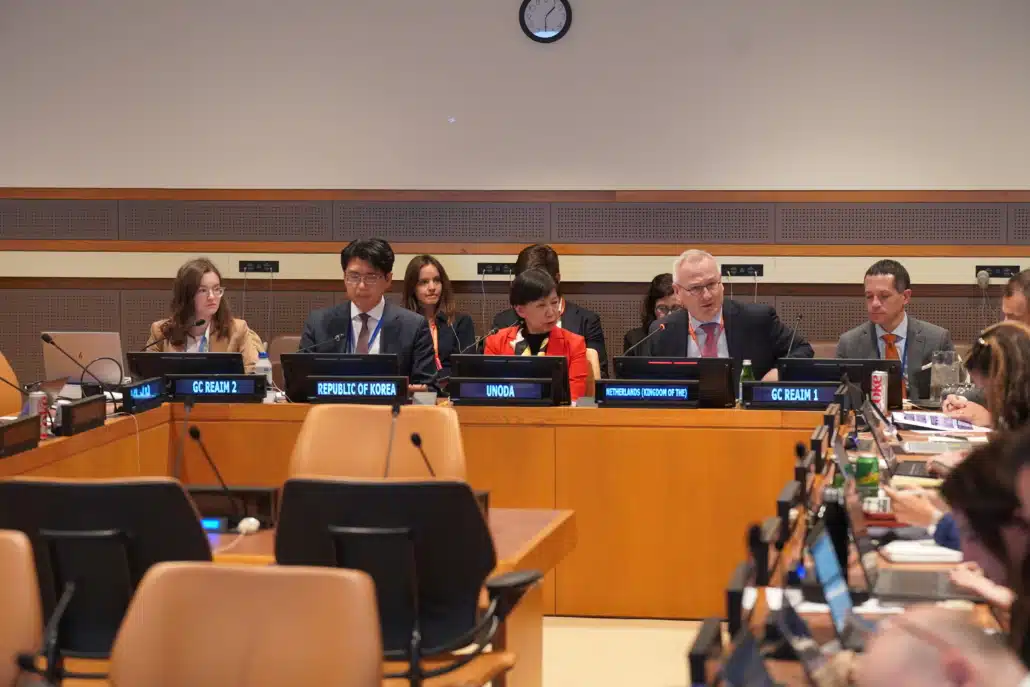
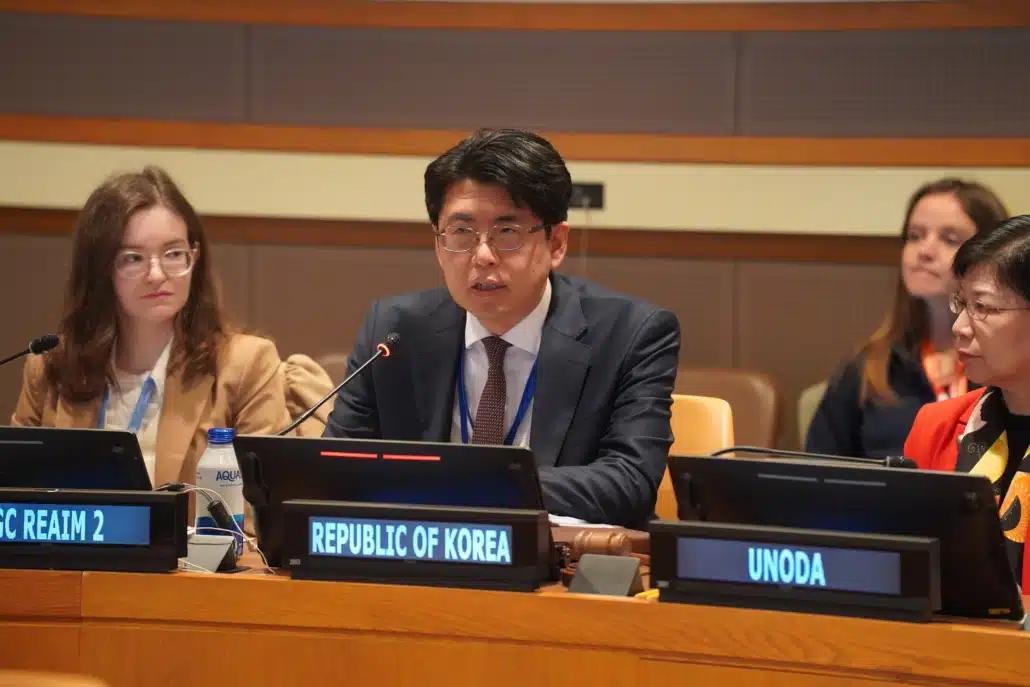
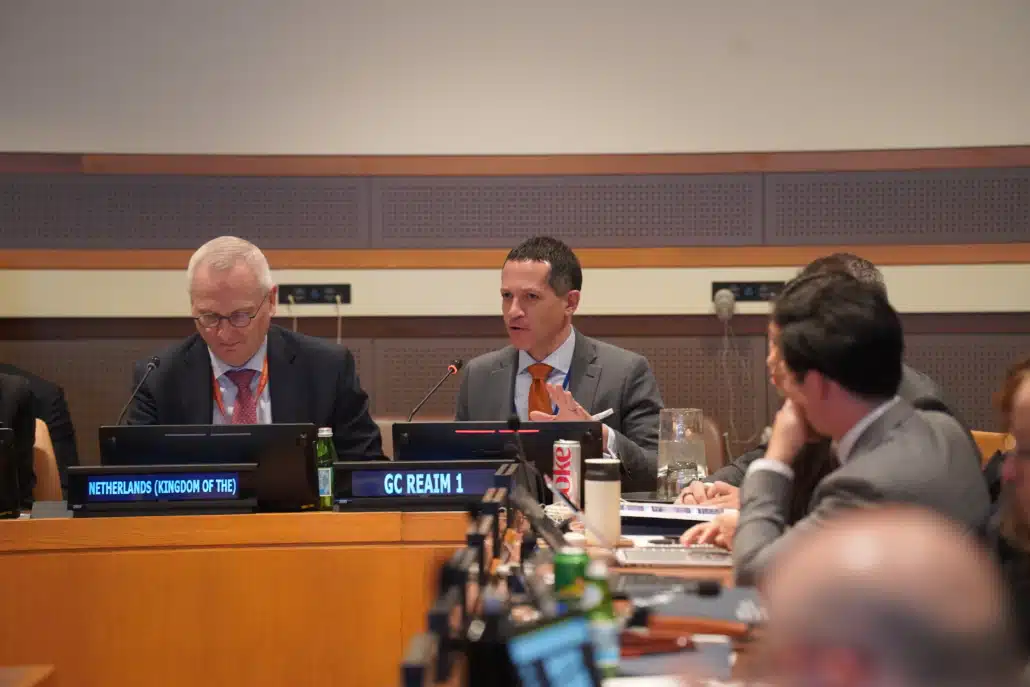
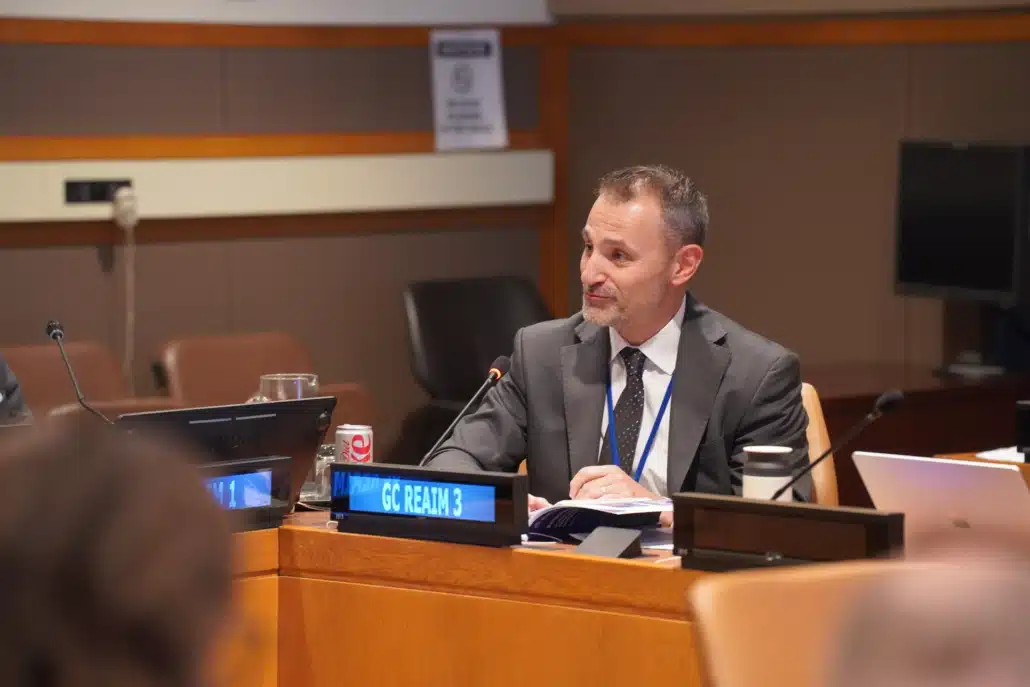
The rapid development of artificial intelligence (AI) technologies and their progressive application within security contexts present a set of challenges that transcend international borders. The software and hardware components underpinning AI are distributed across global supply chains, while their integration into defence practices increasingly shapes how states interact with one another, both in peacetime and in conflict. This reality has spurred the emergence of multiple efforts to establish comprehensive global governance of AI in the military domain, seeking to safeguard international peace and security. Yet, the absence of a unified approach and the proliferation of overlapping activities across different fora have raised concerns among experts regarding their overall effectiveness. Without coordination, there is a real risk that these initiatives may contribute to greater fragmentation, entrenching divisions between stakeholders with differing priorities and normative preferences, thereby making it even more difficult to establish shared governance.
One of the most notable recent initiatives to have emerged in this field is the Responsible AI in the Military Domain (REAIM) Summit series, launched by the governments of the Netherlands and South Korea in 2023. REAIM broadened the scope of international discussions beyond the existing focus on lethal autonomous weapon systems (LAWS), fostering a more comprehensive, multistakeholder dialogue on the development and use of AI across the full spectrum of military activities. Still, despite successfully expanding the agenda and convening a diverse range of actors in just two years, REAIM has been criticised for lacking the inclusivity and formal legitimacy of broader, universal fora such as the United Nations (UN). Furthermore, it has yet to achieve the concrete institutionalisation of governance mechanisms capable of sustaining long-term coordination and implementation of responsible practices.
Against this backdrop, greater alignment between the various international fora engaged in military AI governance is both necessary and highly desirable. Different platforms can play complementary roles in an overarching governance process, focusing on efforts from technical standard-setting to political negotiation and norm development. When coordinated, these fora can reinforce rather than duplicate each other, drawing together distinct perspectives and actor groups under a shared commitment to responsible AI in the military domain.
A positive example of such nascent alignment can be found in the adoption of United Nations General Assembly (UNGA) First Committee Resolution on Artificial intelligence in the military domain and its implications for international peace and security in 2024, which received 159 votes in favour, two against, and five abstentions.1 This resolution, put forward by the Netherlands and South Korea, highlights the growing convergence of multistakeholder and multilateral priorities. Closely connected to the outcomes of the first two REAIM Summits held in The Hague in 2023 and Seoul in 2024, the resolution draws on their respective outputs, the Call to Action and the Blueprint for Action, endorsed by 58 and 63 signatories.
One year on, the First Committee is meeting once again in New York, with expectations of a follow-up resolution expanding on the provisions of the first. The hope is that the resolution will provide further clarity and institutional support for international efforts concerning the governance of AI in the military domain. Its adoption would reflect further consolidation of global commitment and could serve as a crucial step towards the gradual institutionalisation of norms in this field.
First Committee on the 16th of October | GC REAIM Side Event
The Global Commission on Responsible Artificial Intelligence in the Military Domain (GC REAIM), of which HCSS serves as the Secretariat, will be a part of this conversation, with a side-event in the margins of the First Committee on the 16th of October. The event follows the publication of Responsible by Design: Strategic Guidance Report on the Risks, Opportunities, and Governance of Artificial Intelligence in the Military Domain, announced by Prime Minister of the Kingdom of the Netherlands, Dick Schoof, at the United Nations Security Council debate on “Artificial intelligence and international peace and security”, chaired by the Republic of Korea on the 24th of September 2025.
As an outcome of 18 months of work, the Strategic Guidance Report is a uniquely interdisciplinary and multistakeholder document. Drawing on the Global Commission’s diverse expertise and perspectives, as well as plural insights from the broader REAIM process, the report:
- Provides a shared knowledge base for policymakers, practitioners, and experts from various backgrounds, forming common ground for deliberations;
- Offers targeted recommendations for states, militaries, and industry, for the responsible development and use of AI throughout the system lifecycle;
- Proposes an approach for the institutionalisation of global governance.
During this side event, all parties and communities working at the intersection of AI and security will be invited to join a conversation with GC REAIM members and the Secretariat. With opening remarks from H.E. Izumi Nakamitsu, Under-Secretary General for Disarmament Affairs and H.E. Robert in den Bosch, Disarmament Ambassador and Permanent Representative to the Conference on Disarmament of the Netherlands, followed by a conversation with GC REAIM Commissioner and Director of Perry World House, Dr. Michael Horowitz and GC REAIM Expert and Head of the Security and Technology Programme at the United Nations Institute for Disarmament Research (UNIDIR), Dr. Giacomo Persi Paoli and Project Coordinator Sofia Romansky, this session will provide an opportunity to learn about the findings and recommendations of the GC REAIM report as well as share initial reflections and questions, with an eye towards next steps for governance. GC REAIM hopes to make a constructive contribution to ongoing global conversations and serve as a foundation for continued collaboration and convergence among the diverse actors engaged in shaping the responsible use of AI in the military domain, marking not an endpoint, but the beginning of a sustained international dialogue.

